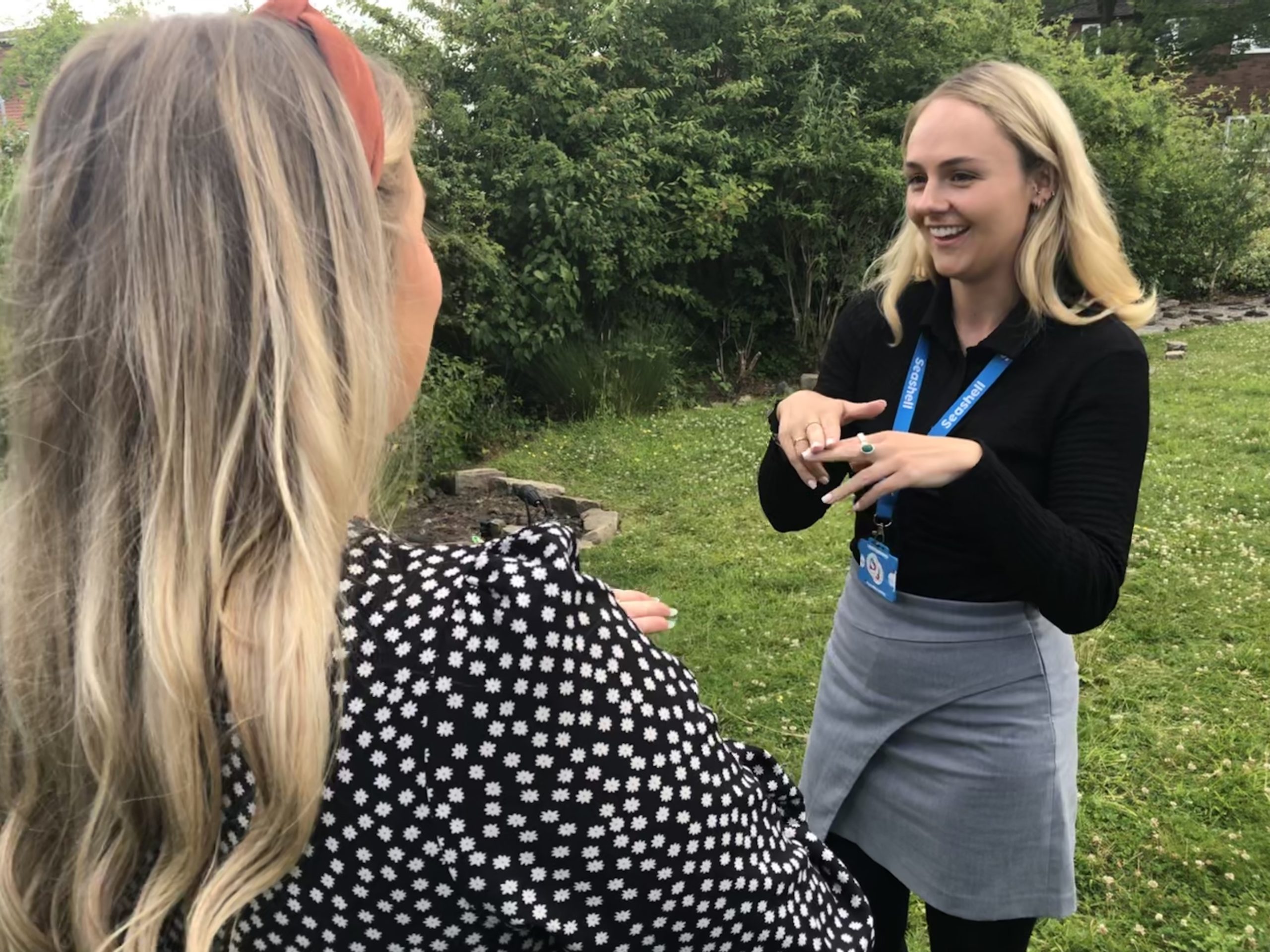Today – Monday 1 May – marks the start of Deaf Awareness Week, and this year the theme is Deaf inclusion, highlighting how hearing loss impacts daily life and how others can help better support Deaf people. Being Deaf brings unique challenges that not everyone will experience, so it’s important to be mindful of this in order to be more inclusive in our work and lives.
Top tips for being more Deaf inclusive:
Learn to sign.
Used to learning few words and key phrases ahead of a holiday abroad? Why not add some BSL greetings to your repertoire? A simple ‘good morning’, ‘please’ or ‘thank you’ can really make a difference. You could also learn the BSL Alphabet, which would help you describe even more!
Caption this…
Sharing a video on your stories or reels on social media? Be sure to include captions so that those who are unable to listen can still be included in what you are talking about.
Be creative!
There’s no hard and fast rules when it comes to inclusive communication and don’t worry if you aren’t fluent in BSL or Makaton. Using visual cue’s, writing your point down or pointing to something are all effective ways to help you get your point across.
Have compassion
Deaf people can face adversity every day, so bare this in mind, and if you are struggling to communicate…please take time and don’t say ‘oh, it doesn’t matter!’. This can understandably be extremely upsetting and make a person feel excluded.

Seashell has a rich history relating to Deaf culture. Back in the 1800s when our charity was established, we started life as a school for Deaf children. The name Seashell was chosen in 2008 as it represents the shell-like shape of the cochlea, the inner part of the ear.
Deaf awareness week is celebrated widely at Seashell and this week a wide range of activities will be taking place across campus for students and staff alike. From an awareness raising poster or sensory tactile switch competition, to BSL sign drop-in sessions, to top communication tips from our team of experts. Not to mention ‘sound bingo’, music activities, free Otoscopies (ear health check) with Therapy Assistant, Alivia, a staff quiz and a Deaf club café, hosted by our college intern students.
“Due to the complexity of our learners, we embrace all styles of communication. Creating communication-rich environments inclusive to all comprises of many different approaches: intensive interaction, switch work, speech, gesture, eye gaze technology, voice output devises, PECS to name but a few. Deaf identity is important to us and understanding how to operate and maintain personal equipment such as: hearing aids, Baha’s or cochlear implants is essential for optimal listening skills. Most learners use a combination of communication strategies, bespoke to their needs, which is why we feel we operate in a total inclusive communication environment. We are proud to embrace and support the development of signing skills across all departments.”
Christine Milner, Royal College Manchester Teacher of the Deaf

